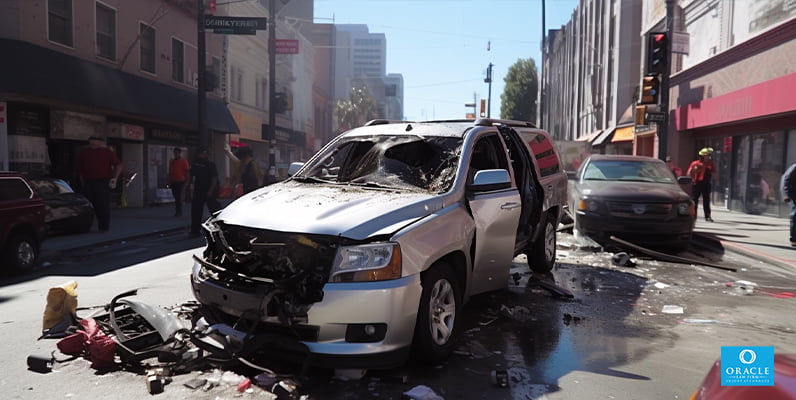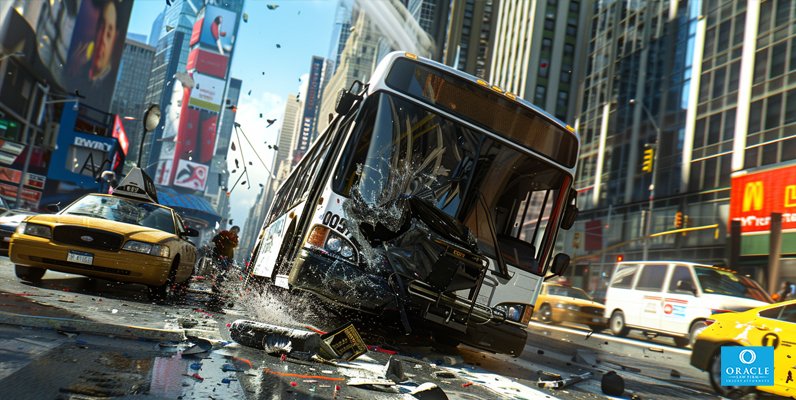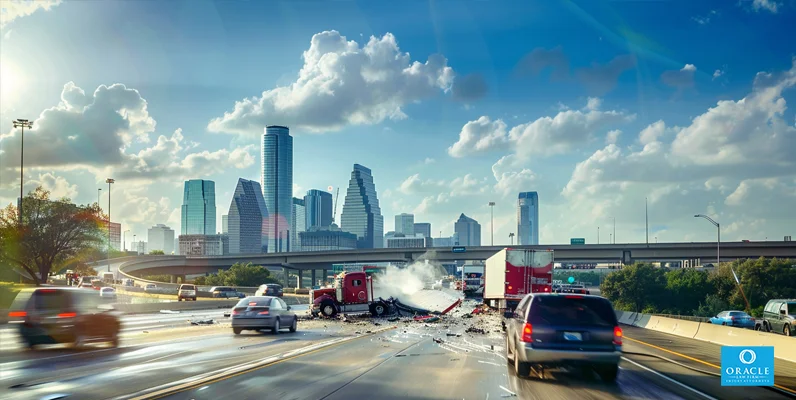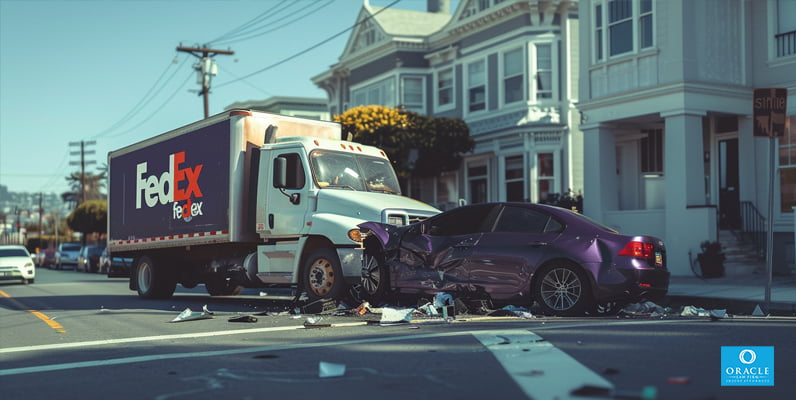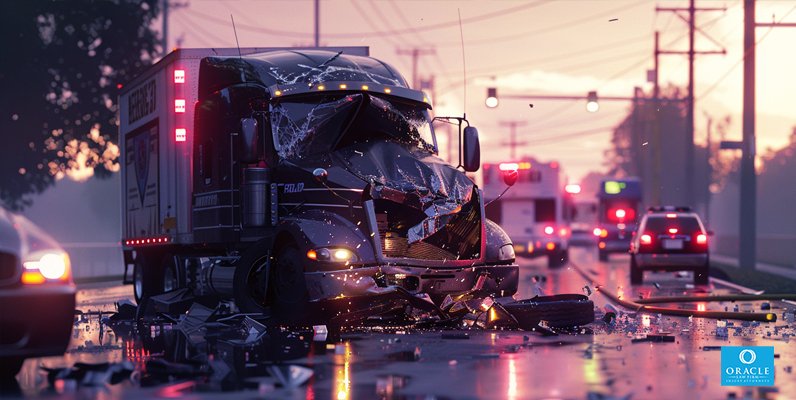In California, your actions after a car accident can significantly affect your potential for compensation. Whether it’s for medical bills, repair costs, or emotional distress, your subsequent moves matter. Following the right procedures is vital to evade legal consequences, including potentially suspending your driving privileges. Regardless of fault, understanding the steps to follow post-accident is paramount.
Make Sure Everyone Is Okay
Before anything else, ascertain the well-being of everyone involved in the car accident. Car accident injuries can range from minor scrapes to traumatic brain injuries.
- Check for visible injuries and ask passengers in your vehicle how they feel. Remember, some injuries aren’t immediately apparent and might manifest hours or days after the collision.

Call the paramedics if needed
If anyone has sustained injuries or complains of pain, it’s crucial to call emergency personnel immediately.
- Even if there aren’t obvious signs of harm, it might be wise to seek medical attention. Certain injuries, like whiplash or internal damage, might not display immediate symptoms. Going to an emergency room can save lives and ensure a record of any injuries, which might be crucial for an ensuing personal injury claim.
Move to a safe area
If the vehicles involved are causing a hazard on the roadway:
- Engage hazard lights and, if possible, move them to a safer location. However, if the car accident is severe, avoid moving the vehicles until law enforcement arrives.
Call the police
Regardless of the severity of the auto accident, you should contact the authorities. A law enforcement officer, typically from the California Highway Patrol or local police, will file an accident report.
- This report is critical, especially when dealing with insurance adjusters and if a car accident lawsuit arises. It offers an objective overview of how the car accident happened.
Do Not Admit Fault
Even if you believe you might have contributed to the accident, never admit fault at the accident scene. Statements can be misconstrued and used against you during insurance claims processes or in court.
- Stick to the facts when speaking to the other drivers, witnesses, or the police. Admitting fault can have implications on your insurance policy and potential financial compensation.
Exchange information with the other driver
It’s essential to collect the following details:
- Driver’s license numbers
- Insurance information, including the insurance company and policy number
- Names, addresses, and contact details
- The license plate number of the vehicles involved
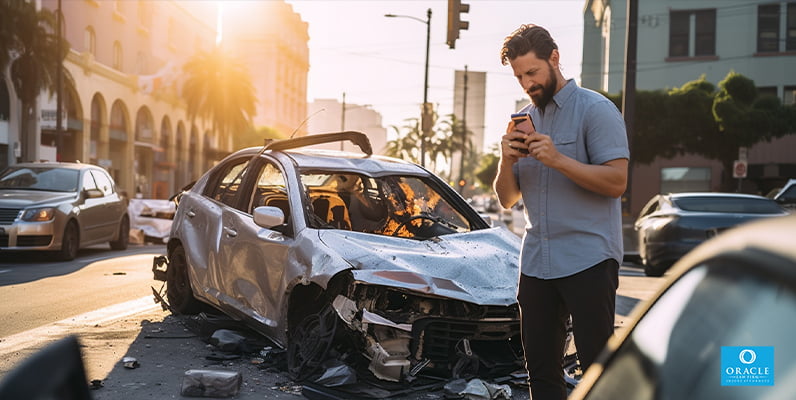
Take photos of the auto accident scene
Documenting the scene can provide invaluable evidence when filing a personal injury lawsuit or insurance claim. Capture:
- Damages to all vehicles or property
- Vehicle damage positions, traffic signals, and signs
- Visible injuries
- Any other relevant aspects of the accident scene

Contact A Car Accident Lawyer Before You File An Insurance Claim
Engaging with car accident attorneys early can substantially affect how your case unfolds. They offer:
- Expertise in California insurance code and auto accidents
- Assistance in dealing with the other driver’s insurance company or your insurance agent
- Guidance on rights, legal fees, and legal services required
- Free consultation on potential car accident lawsuits or personal injury claims
Frequently Asked Questions
Do I Have to Pay a Deductible If I Was Not at Fault for an Auto Accident in California?
If the at-fault driver’s insurance carrier accepts responsibility, you won’t have to pay your deductible. However, if there’s a delay or dispute, you might have to pay upfront and be reimbursed later.
Should I Get a Lawyer for a Car Accident That Wasn’t My Fault in California?
Yes, an experienced attorney can help you navigate the complexities of California car accidents, ensuring you get fair compensation. They’ll negotiate with insurance adjusters, handle legal services, and advocate on your behalf.
Filing A Personal Injury Lawsuit After a California Car Accident
If you’ve sustained injuries due to someone else’s negligence, you might be entitled to file a personal injury lawsuit. This allows you to seek compensation beyond immediate medical bills, including lost wages and non-economic damages.
Should You Call Your Insurance Company After an Accident That Wasn’t Your Fault?
Yes. Regardless of fault, it’s crucial to report the car accident in California to your insurance company. They’ll guide you on the necessary steps and requirements, ensuring you meet your financial responsibility as mandated by the California Department of Motor Vehicles.
